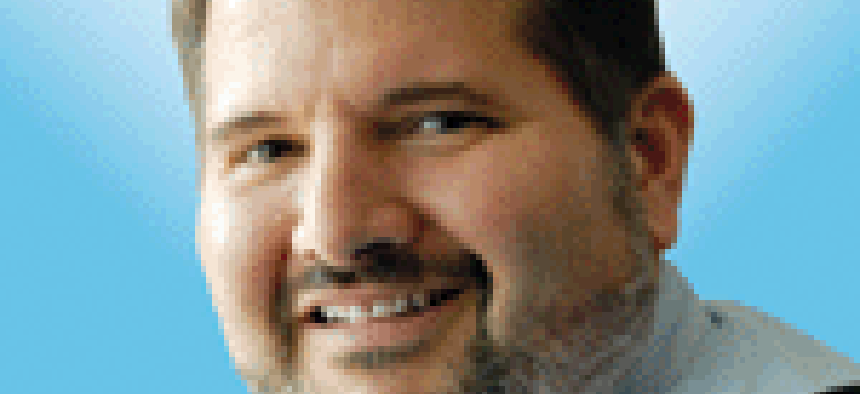Score one for diversity and good business

A program by Women In Technology to get more women on corporate boards claims its first victory, but it isn't just a feel-good story; it makes good business sense too.
Usually, appointments to corporate boards aren’t real big news. If the company is big enough, and if the person well-known enough, we might write about it, we might not.
But the appointment of Vincette Goerl this week to the board of advisors of FedBid is noteworthy because, not only is FedBid getting someone with stellar credentials, but she also represents a milestone for Women in Technology, a professional group for women in the IT industry.
You see, there’s a problem in corporate America with poor representation of women on company boards.
In 2011, WIT created the Leadership Foundry program to bring training, networking and mentoring opportunities to women looking for spots on corporate boards. Goerl was in the inaugural class, and is the first from the program to land an appointment.

New FedBid board member Vincette Goerl
I spoke with Nancy Lamberton, president of WIT, and she explained the foundry’s three prong approach:
Training: WIT brings in the National Association of Corporate Directors to provide training on board specific skills, such as the fiduciary responsibilities, compensation, governance and risk oversight.
Networking: “We need to introduce these highly capable women to those who are looking to fill board seats,” Lamberton said. This includes connecting them with recruiting firms and current board members, so that “they are top of mind when there are openings.”
Mentoring: The foundry has a steering committee comprised of men and women currently serving on boards. They helped shape the program and serve as a resource to help women prepare, particularly for the arduous interview process for board positions.
I’ve never given much thought to how people get on boards, and Lamberton said that this is an issue for women as well.
“You have very qualified women on one side, with experience running business units and [profit and loss] responsibilities, who want to get on boards,” she said.
On the other side, WIT has reached out to companies to advocate for gender diversity and the companies respond that they can’t find them.
“Our goal is to bring these two groups together,” she said.
It’s hard to argue with Goerl’s background; she spent one career in government, and served as the chief financial officer at the U.S. Customs Service and the U.S. Forest Service. She’s also worked in industry at the CGI Group, and now has her own consulting practice focused on federal financial management.
She also has served on non-profit boards, and has chaired a couple. Friends and colleagues pointed her to the foundry program as a way to move onto corporate boards.
“The board dynamic is very interesting to me, and it’s a great way to add value to whatever entity you are involved with,” she said.
The concept of adding value is what drew her to FedBid because improving procurement processes was part of her role as a government CFO.
FedBid runs reverse auctions for agencies looking to buy commodity products. More than $2 billion in transactions will be handled by the company this year.
The networking aspect was critical to landing the spot at FedBid, and was a key component of her training at the foundry, Goerl said.
“You can never undervalue the networks you have,” she said.
Goerl reached into her network, which include FedBid founder and CEO Ali Saadat.
In fact, when she was a government CFO, her agency was a customer of one of Saadat’s companies before FedBid, and she later worked at the company, he said. He has known her for more than 20 years.
Her value-add for FedBid will be helping to raise awareness within the federal CFO community, Saadat said.
“We’ve been pretty much coming from the operations and procurement side,” he said. “We realized we needed a campaign on the CFO side, so they understand more of what we do and the benefit we can bring.”
While from a social aspect, more diversity is a good thing, there also has to be a business payoff, and Saadat clearly sees that. He already has women on his board of advisors and on his board of directors.
“Diversity is phenomenally important. It’s critical,” he said. “We have to understand our client base and the client base is very diverse.”
Different perspectives improve thought processes and “our ability to strategize and execute properly,” he said.
On FedBid’s board of advisors, Goerl joins a former congressman, a couple of retired military leaders and a Harvard professor.
For the Leadership Foundry, it’s a good start. So far, about 30 women have gone through the program, and the third class is being formed. I’m sure more board appointments are on the way.
NEXT STORY: OFPP's Jordan takes price debate to Twitter
